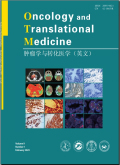摘要Gastrointestinal stromal tumors(GISTs)are the most common type of soft tissue sarcoma in the gastrointestinal tract.Most GISTs have been attributed to activated gain-of-function mutations in either KIT or platelet-derived growth factor receptor α,making these molecular features essential targets for therapeutic interventions.Although surgery is the standard treatment for localized GISTs,patients often ex-perience relapse and disease progression even after surgery.In recent years,targeted therapy has significantly improved the prognosis of patients with advanced GISTs.Imatinib mesylate,a KIT inhibitor,is the first-line treatment for advanced GISTs and has revolutionized the treatment of this disease.However,drug resistance remains a major issue with imatinib treatment,as a significant majority of patients be-come resistant to imatinib either after initiation or after 2-3 years of treatment.Consequently,novel tyrosine kinase inhibitors such as su-nitinib,regorafenib,ripretinib,and avapritinib have been introduced to address drug resistance.Immunotherapy has emerged as a poten-tial approach for the treatment of advanced GISTs.This review comprehensively summarizes the pathogenesis of GISTs and the devel-opment of targeted therapies and immunotherapies,provides an overview of the emergence of drug resistance in advanced GISTs,and discusses the challenges and prospects associated with the treatment of GISTs.
更多相关知识
- 浏览8
- 被引0
- 下载1


相似文献
- 中文期刊
- 外文期刊
- 学位论文
- 会议论文



 换一批
换一批 换一批
换一批



